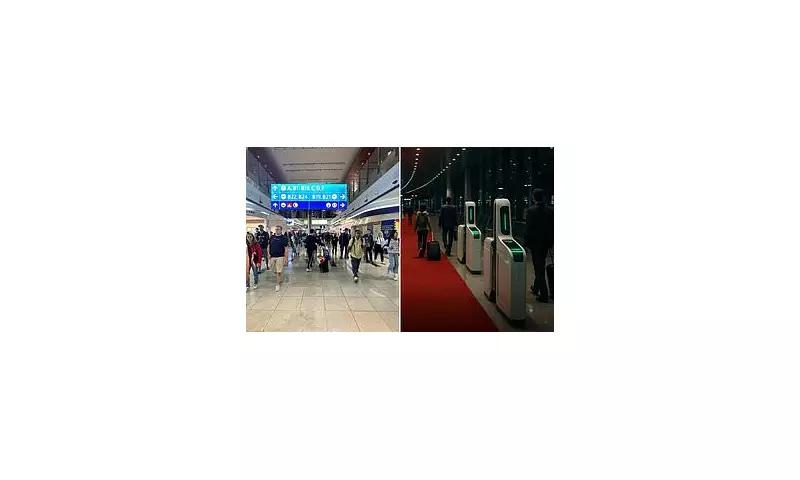
Manchester Airport is pioneering a futuristic travel experience with the launch of a cutting-edge, AI-driven 'smart corridor' designed to revolutionise the immigration process. This groundbreaking technology is set to slash queue times at passport control by an impressive 50%, offering a seamless and contactless arrival for travellers.
The innovative system, a first of its kind at a major UK airport, utilises advanced facial recognition technology. Upon disembarking, eligible passengers are guided into a dedicated corridor equipped with overhead cameras. These sophisticated sensors automatically verify a traveller's identity by comparing their live image to the biometric data stored in their e-passport.
How The Futuristic System Works
The process is designed for remarkable simplicity and speed:
- Eligible Arrival: Passengers holding newer e-passports containing a biometric chip disembark from specific flights.
- Seamless Walkthrough: Instead of joining a traditional queue for a border officer, they enter the brightly lit 'smart corridor'.
- Automated Verification: Overhead cameras scan their face on the move, instantly matching it to the digital photograph in their passport chip.
- Swift Exit: Upon a successful match, a glass barrier at the end of the corridor automatically opens, allowing the passenger to exit directly to the baggage reclaim area without ever having to stop or present a physical document.
A Major Boost for Passenger Experience and Security
This initiative is a core part of the UK's broader 'Border 2025' strategy, aiming to create a more efficient and modernised border control system. The benefits are twofold:
- Enhanced Efficiency: Dramatically reduces waiting times, alleviating congestion and stress for thousands of passengers, especially during peak travel periods.
- Strengthened Security: The automated system performs advanced, consistent checks, potentially identifying issues that might be missed by the human eye amidst a busy queue.
While the technology is currently optional and available to specific cohorts of travellers, its successful implementation at Manchester Airport's Terminal 2 could signal a new standard for air travel across the United Kingdom, paving the way for a more streamlined and tech-forward journey.





